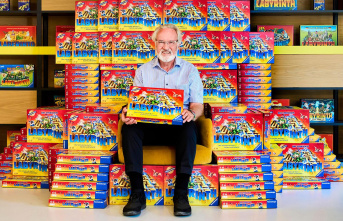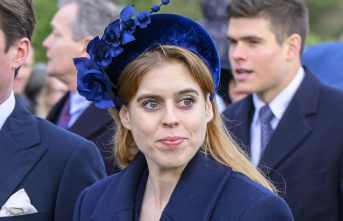The cinema, the theatre, the neighbourhood (Gracia), summers in the village and a first-youth erratic –Uruguay, Cuba, France, Italy - have shaped the work of Use Lahoz (Barcelona, 43 years), writer, journalist, teacher, and lover and defender of the need of humans to see the life represented “to sobrevivirla”. The world of theatre is a fundamental part, the shaft, in many ways, his latest novel, Paradise (Destination), is not, therefore, chance.
it All began, in fact, in an armchair of the Lliure de Gràcia, one night. I was watching your first chekhov, The cherry orchard. Anna Lizaran was playing Liubov Andréievna, the owner of the farm. “I've never seen anyone say goodbye as she” remembers the writer. Something went off in his mind after that goodbye. Tried to recover the feeling by going to see a chekhov after another. But the thing, whatever it was, it never returned.
MORE INFORMATION
“The fascination of the realistic novel is unbeatable” Use Lahoz wins the Spring with ‘The year that I fell in love with all’' A novel doesn't start when you write the first word, a novel always begins much before,” she says. Dreams began that night. Maybe that's why, consciously or unconsciously, when it starts, María Broto, the daughter of the protagonist, is playing precisely The garden of the cherry trees in the Lliure. To his departure, he expects a type that does not know anything. She is an actress relatively famous, elusive. As it says Lahoz, “bad falls”. It is too selfish. At times, unbearable. Agree to listen to the type because it speaks of a time in which life does not yet hurt. In the that, for her, everything was paradise. When he lived in the village, Valdecádiar, with his father. The guy says that his father has died. If she wants it, takes it to the burial. And she, who has never been able to forgive his father for what he did, go.
So begins the story in two times –the past, and the journey of 48 hours in the present – which contains the novel, a puzzle, for Lahoz, indeed, as the works of Chekhov, “impressions”. Impressions, details, that are like pieces cluttered that the reader, as you go, sorted. Rather, it finds and places it in its due place. A little as happens to the protagonist with all that unknown of his father. An iceberg that has just seen a small part of it. Mary woke up one day in Valdecádiar, spent a childhood “atavistic”, happy, without being aware that his father was fleeing from something, of poverty, above all, but also of something more, and then returned to Barcelona, with him, fleeing, also, a false accusation, and who knows if something more, and then, at some point, he discovered what he would never want to have discovered, and refused to forgive him. Lahoz will sympathize. It is a rainy December day in Gràcia.
“Theodore is a fascinating character. All what you have, what gives. It is at once a mother and a father. Want to with crazy Mary, but when it occurs the clash between them is aware that the thing already has no remedy. That has been lost. Theirs is a love story. A story of love wretched between a father and a daughter,” says Lahoz. It is also a story of forgiveness. “Pardons are pending,” he adds. Because “at a certain age, the forgiveness is not requested as requested a drink in a party with open bar”. Teodoro has forgiven it all, Mary is unable to forgive, and for that reason have not been able to reconcile and now he is dead. “It is a novel also about this is not reconciliation, on all the pain that causes. Mary and Theodore has not given a time to be reconciled, but not only them, to other characters in the novel either,” he says. Thinking about the character of Mary and what the future afforded, it invokes Lahoz, Luis Cernuda and verse of your poem I was a Teenager that longs for the era in which “it was the ignorance in my shadow”.
The language is also fundamental in the history. As are the ways. Life in the village. “Human relationships were not equal in the village. I wanted to write about how you want to, how they eat, how they drink, how it takes care of in the village. I needed to go back to that dreams are foundational to the life without artifices,” the writer says. With that trip to the past I also wanted to demonstrate how what we say does not mean the same thing. “Time changes the meaning of the words,” says Lahoz. An example. For the father of Mary, jauja was the money, the abundance, it was Russia, the place where everything was paradise because there were no rich nor poor, because they all had the right to everything. For Maria, jauja is the life before the money, the life in the village, the pure love and ancestral by the small things. As well, the language is also an organic entity that goes out of shape, being rebuilt, with time, you will, in reality, adapting to what the time, and every one, asked. But comes from very far away. “As I would say Kierkegaard, life is lived forwards, but understood backwards,” he says.
Date Of Update: 30 December 2019, 13:00










